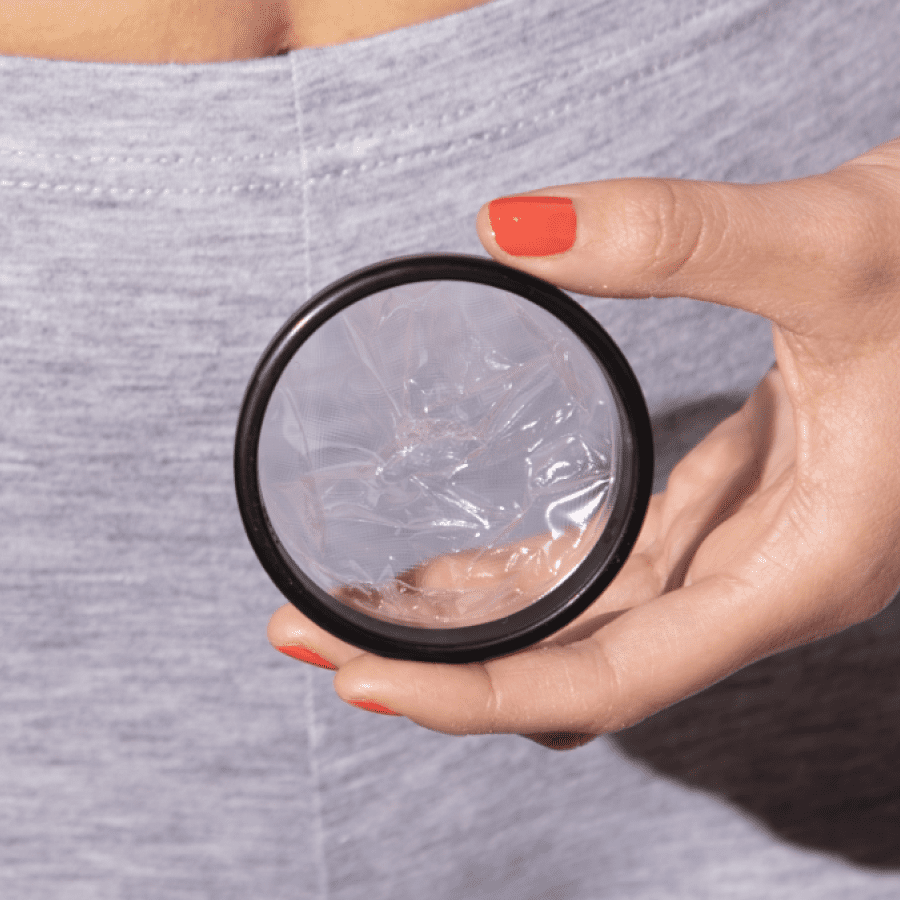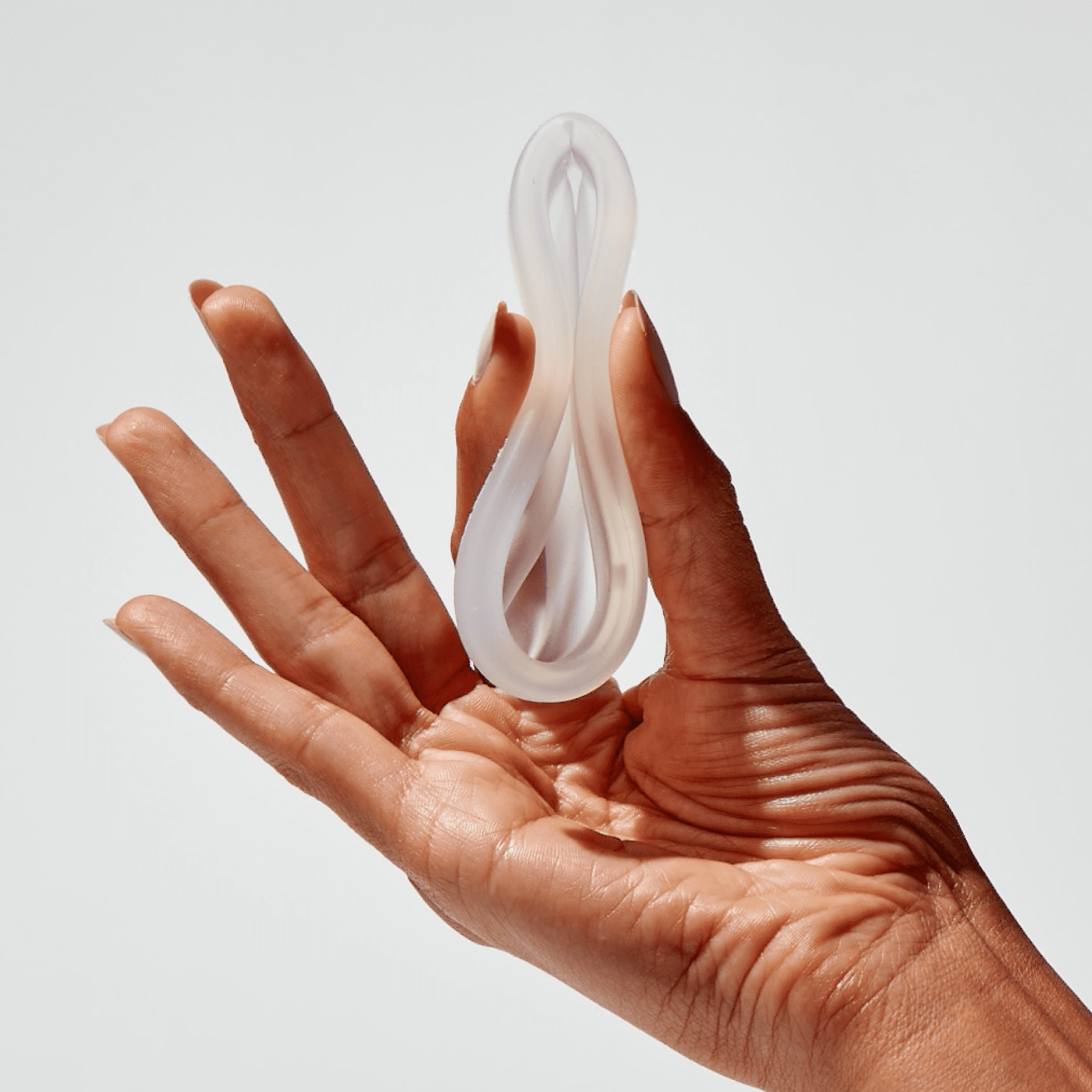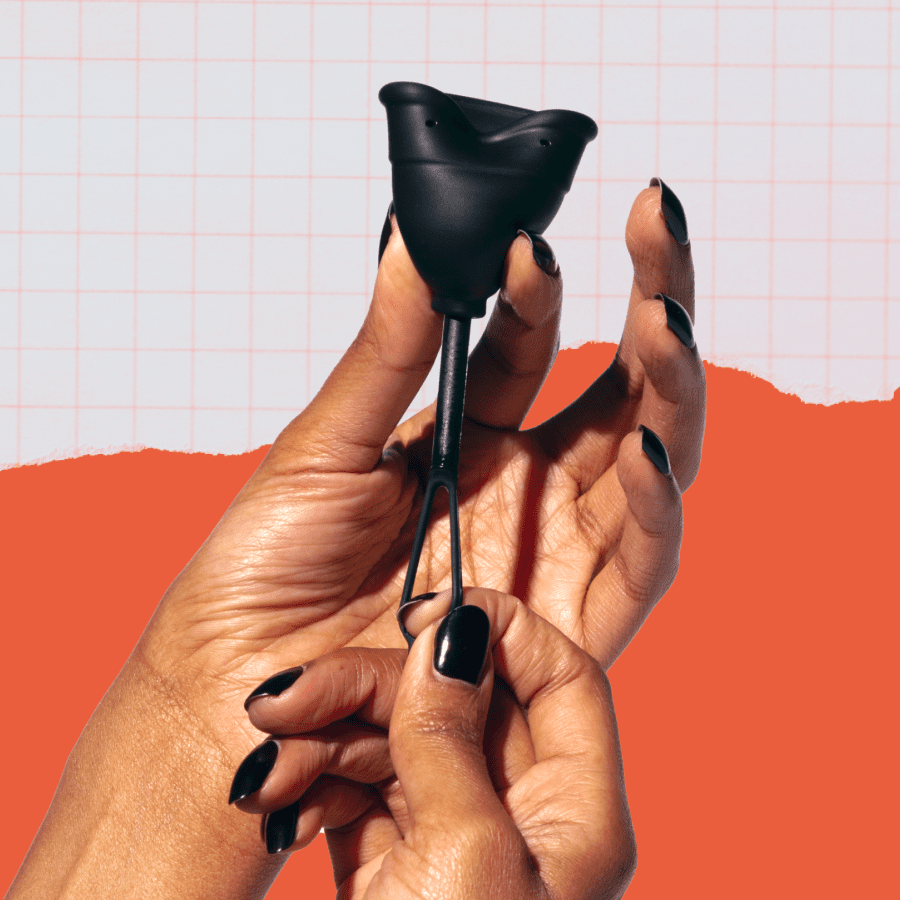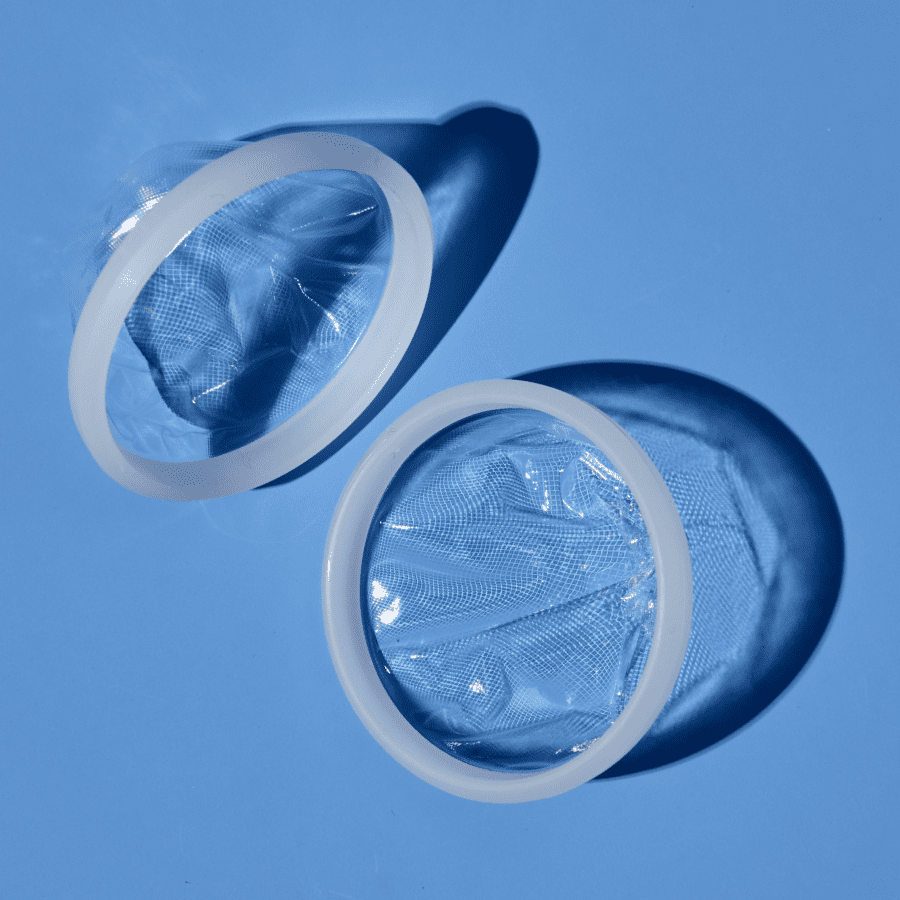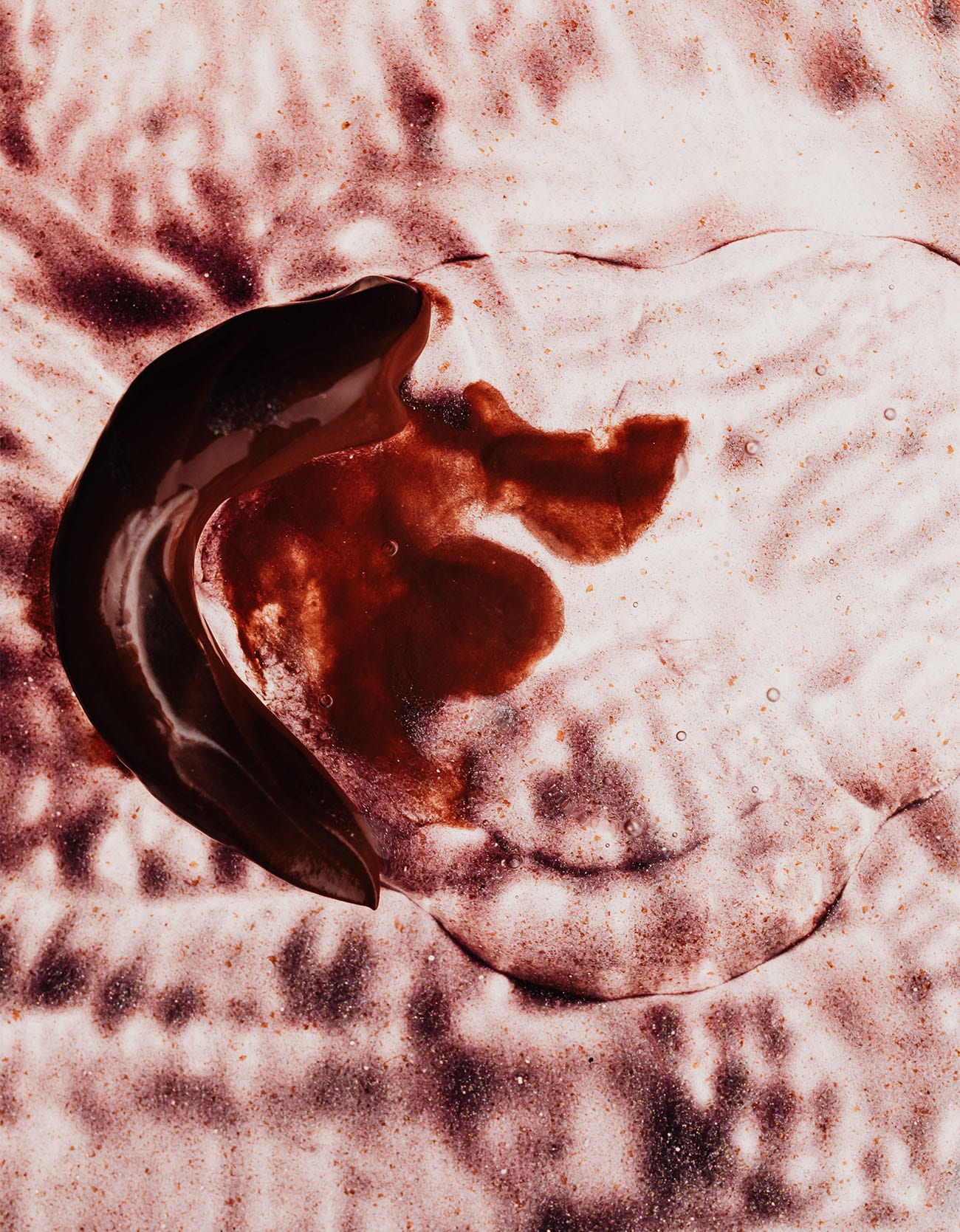How to interpret your vagina’s normal (or abnormal) scent
Fi, fie, fo, fum – is a smell in your vagina making you glum? New smells in your vagina or changes in your discharge shouldn’t be ignored. Although they could be a sign of infection, not every vaginal odor means something is wrong.
Your scent is unique to you and can fluctuate slightly depending on many factors. Your hormone levels, the food you’ve been eating, and whether or not you’ve been having sex, among other factors.1
Here’s the down-low on common vaginal smells and what they could mean.

Not all vaginal odor means trouble
Like any other body part, the vagina has a smell. Vaginal odor, along with discharge, is completely normal and is usually nothing more than a sign of a healthy vagina. Familiarizing yourself with how your vagina typically acts and smells will help you detect changes that might indicate illness or infection.
Normal vaginal odor might smell like:
Tangy or fermented: The natural pH of a vagina is acidic, similar to coffee, wine, or apple juice. “Normal” vaginal pH can range from 3.8 to 4.5 on the pH scale. The vagina carries lactobacilli, the same bacteria found in yogurt. This good bacteria maintains a low pH and prevents the growth of harmful bacteria.2
A sour, tangy smell is a good sign of a healthy vagina. It indicates a balanced pH level and the presence of lactobacilli. After sex, you may also notice a tangy smell due to sweat, bodily fluids, and semen.
Because semen has a higher pH than the vagina, it can sometimes temporarily change the scent of your vagina. It can also throw off your vaginal pH balance.
Coppery: A metallic smell could be a sign of blood. This particular scent is common when you are near the menstruation stage of your menstrual cycle. It could also be a sign of bleeding after sex, which isn’t necessarily a cause for concern. However, if it’s constant, you should consider telling your doctor or health provider and ask for a Pap smear.3
Sweet: Like tangy smells, a sweet vaginal odor is usually simply due to a bacterial fluctuation. In most circumstances, it shouldn’t be a cause for concern.
Skunky: No, you’re not high – sometimes vaginas can smell like weed. Your groin is full of apocrine sweat glands that secrete a milky fluid. When this fluid comes in contact with vaginal bacteria, it can create a distinctive smell. Depending on where you live, this smell can remind you of Pepe Le Pew or your local dispensary.
Vegetable-like: Much like chowing down on asparagus can make your pee pungent, your diet can also influence your vaginal odor. It is not uncommon to hear “my vagina smells like onions.” Onions and garlic are two examples of foods that can echo in your vaginal smells. Again, this has to do with the smell of your sweat changing and then interacting with vaginal bacteria.
Sweat is your body’s way of cooling down. It’s pretty much inevitable whenever your body temperature rises, especially when the local ventilation is minimal.
Sweat can lead to body odor. Vaginas – being warm, naturally hairy, and full of sweat glands and bacteria – are prone to “sweaty” smell too. Some are just sweatier than others, regardless of size or weight. It’s nothing to worry about!
What about vaginal discharge?
Vaginal discharge varies throughout the menstrual cycle. Clear or slightly cloudy discharge indicates a healthy vagina. During ovulation, discharge may be thinner and clearer. Any changes from the normal discharge and odor should prompt you to seek medical attention.
Abnormal vaginal odor: When to get checked out
If your vagina or vaginal discharge has a very strong odor, including after sex, it may be a sign of infection. Keep an eye out for changes in discharge. This includes changes in color, consistency, amount, or any additional symptoms such as the ones listed below:4
- Burning
- Bleeding or spotting
- Vaginal itching
- Pain during urination or sex
- Any swelling or discomfort
A change in vaginal odor may accompany these symptoms. If you notice any of the above, call your healthcare provider to get checked out. Below are a few ways to describe vaginal odor that could be problematic (i.e. pointing to possible infection):
Chemical or bleach-like: Bacterial vaginosis will sometimes cause vaginal odor that’s similar to the smell of bleach. This is not definite proof of an infection. Urine buildup in underwear or around the vulva can also produce an ammonia smell.
Foul and/or fishy vaginal smell: A “low tide” smell from the vagina should be considered suspicious. The same level of suspicion as fresh fish that smells strongly “fishy.”
Trimethylamine is a chemical compound that is responsible for the smell of rotting fish. This compound can be found in the vagina when certain infections are present. Bacterial vaginosis (BV) and trichomoniasis (trich), an STI, are the two most common culprits behind fishy vaginal odor.5
Rotten: We’ve heard this one before: “My discharge smells bad but not fishy.” A rotting smell coming from any part of the body is not good. Your vagina is no exception. The most common reason for a putrid smell is a forgotten tampon.
TSS is definitely still a thing. Notice a terrible odor and have a fever, diarrhea, confusion, or muscle aches? If you left a period product in too long, get yourself to the ER, stat.
Why do my pants smell down there?
“I can smell myself through my pants”… As uncomfortable as it may sound, there’s no need to be embarrassed if you experience vaginal odor and think there’s something abnormal going on with your vagina. Most infections are common, treatable, and preventable – plus, these symptoms are rarely a sign of a more serious condition.
Don’t put off a doctor’s visit if an unusual change in odor or discharge catches your attention.

Common vaginal infections: What you need to know
The most common vaginal infections are usually accompanied by a handful of the symptoms described above. Some are sexually transmitted, but the most common infections can happen with or without sexual contact.
Yeast infections
Yeast infections are so common that nearly every person with a vagina will have one at some point. They are caused by a “friendly” fungus known as candida that always lives in your body.
Certain factors like antibiotics, hormonal changes, and high blood sugar can cause candida overgrowth and infection. Fortunately, most yeast infections can be easily treated with over-the-counter antifungal medication.
You may have a yeast infection if you notice an increase in discharge. The discharge will appear thick, white, and clumpy. Many say this discharge resembles cottage cheese, accompanied by itchiness and redness of the vulva.
Yeast infections don’t typically change your vaginal odor, though some have reported a noticeably “yeasty” scent to their discharge. If you’ve baked bread from scratch, you may be able to pick up on it.
Bacterial vaginosis BV
Bacterial vaginosis, aka BV, is related to another friendly bacteria, Lactobacilli. The proportion of this bacteria in the vagina can decrease, creating an imbalance. If this happens, bad bacteria can take over and cause BV. Untreated BV can lead to PID, which can spread to your uterus, fallopian tubes, or ovaries. Persistent BV can also cause recurring UTIs that can impact your bladder.
Symptoms of BV include discharge that is thick and whitish, or slippery and clear. A fishy odor is often present, especially during intercourse – but itching and burning are generally not present. BV can be treated fairly easily with oral or topical antibiotics.6
Trichomoniasis
Trichomoniasisis a common sexually transmitted infection (STI). It is often accompanied by burning, irritation, redness and vulval swelling. Symptoms also include a yellow-green or grayish discharge, fishy odor, and pain during urination.
Trichomoniasis is transferred from partner to partner. Therefore, both partners must be treated with antibiotics before resuming intercourse to prevent reinfection.
Chlamydia and gonorrhea
These two STIs do not always cause symptoms but can lead to changes in discharge in some people. You may need an STI test if you experience unusual changes after unprotected sex or a change in partners. This is to rule out any potential STI infections.
Noninfectious vaginitis
This is not an infection but can have symptoms similar to one. This is a technical term for reactions and allergies in the vaginal area. These reactions can make the skin around the vagina become sensitive.
Common causes of irritation include irritants in laundry detergent, scented tampons, and perfumed soap. The treatment is to switch to more gentle products that do not contain perfumes or other known irritants.7

How infections happen
Your vagina is a magnificently strong organ that can squeeze out objects the size of grapefruits. However, the bacteria that naturally lives inside can be easily disrupted. Some outside factors that can include the vaginal flora include (but are not limited to) the following:8
- Douching
- Hormonal changes (i.e. new hormonal contraceptives; entering menopause)
- Antibiotics
- Sex (including oral sex)
- Pregnancy and/or breastfeeding
- Poor hygiene
- Wearing undergarments that trap moisture (or leaving your sweaty underwear on for hours after your spin class)
Don’t be a douche to your vagina
Healthcare providers and medical researchers agree thatdouching does nothing but wreak havoc on your vagina.
It’s bad on two levels. First, it throws off vaginal pH levels by introducing a substance with a higher pH into the vaginal ecosystem. Second, it deprives the vagina of beneficial lactobacilli bacteria. These bacteria are necessary for maintaining an acidic pH level and preventing infection.9
This creates a perfect storm for bad things to happen. Our advice to you: leave douches back in the 1950s, where they belong.
How do I get rid of the odor down there?
Wondering how to make your vagina smell good? Our first and most important tip is to recognize that your vagina is not supposed to be odor-free! This ecosystem is made up of microorganisms. They work to prevent infection and keep your reproductive system working properly.
We have been exposed to aggressive marketing messages about how our bodies should appear, feel, and smell since we were young. Take a stroll down the flowery menstrual product aisle at your local drugstore. You’ll leave with the impression that your vagina is a stinky, gross problem. A problem that must be corrected with perfumed tampons, wipes, deodorant sprays, and douches.
Your natural vaginal odor is not something you need to fix. It’s time to acknowledge that many of these “beauty standards” are completely ridiculous and even unhealthy. Your vagina is no exception, and we hope you’ll join us in celebrating its incredible, unique qualities (including its scent!).
If you experience strong vaginal odor during your period, after exercising, after sex, or due to medication or other factors (and it’s not related to an infection or medical issue), there are ways to minimize the odor.
First, make sure to practice good hygiene. It sounds basic, but forgetting to get into a fresh pair of undies after sweating during your workout is easy. In that same vein, stick to breathable underwear made from moisture-wicking fabric.
Avoid long bubble baths with products that aren’t pH-balanced, and don’t even think about douching. In the shower, rinse your vulva with warm water, soap isn’t necessary.
However, if you feel the need of washing yourself with soap, try mild soap. Better yet, pick a gentle, fragrance-free, body-safe, pH-balanced, and gynecologist-approved product. A great option is Flex Foaming Cleanser, designed for menstrual cups and body parts.
To prevent the spread of bacteria, wipe from front to back after using the toilet. Consider upgrading to a bidet for a more thorough cleaning after each bathroom visit. Bidets are easy to install and can also simplify cleanup during menstruation while reducing vaginal odor caused by period blood.
Vaginal wipes are a convenient way to freshen up your vulva if you’re not ready for a bidet. Flex Wipes, like the Flex Foaming Cleanser, are free from chemicals, parabens, and other harmful substances and are dermatologist-tested.
Another tip for period odor is to change your period products regularly. Never wear a product for longer than the manufacturer recommends.
Flex Cup™ and Flex Disc™ can be worn for up to 12 hours. In comparison, tampons and pads have a shorter maximum limit of 8 hours. Since pads and tampons absorb, rather than collect period blood, they’re more likely to smell in a shorter time.

Probiotics are beneficial for vaginal health and reducing odor. They help restore the natural balance of vaginal bacteria, which can be disrupted by various factors.
Finally, practice safe sex and use condoms with any new sexual partners. If you have any concerns, never be afraid to get tested! Planned Parenthood offers non-judgmental STD testing and treatment if you can’t see a primary care provider or OB-GYN.
Normalize your body
Fragranced menstrual products can disrupt your vaginal pH and irritate delicate tissues. If you have a strong odor, determine the cause and consult a healthcare professional for proper care, rather than relying on masking it.
The best thing to do is to embrace your vagina for what it is. Get to know it a little better. Take a whiff of your underwear every now and again to familiarize yourself with your own healthy, normal scent.
Be kind to your body, listen to what it’s telling you. Be appreciative of your vagina for all the incredible things it does daily.
This article is for information only. It is not offered as medical advice, nor does it substitute for a consultation with your physician. Please consult your physician if you have any gynecological/medical concerns or conditions.
© 2023 The Flex Company. All Rights Reserved.

